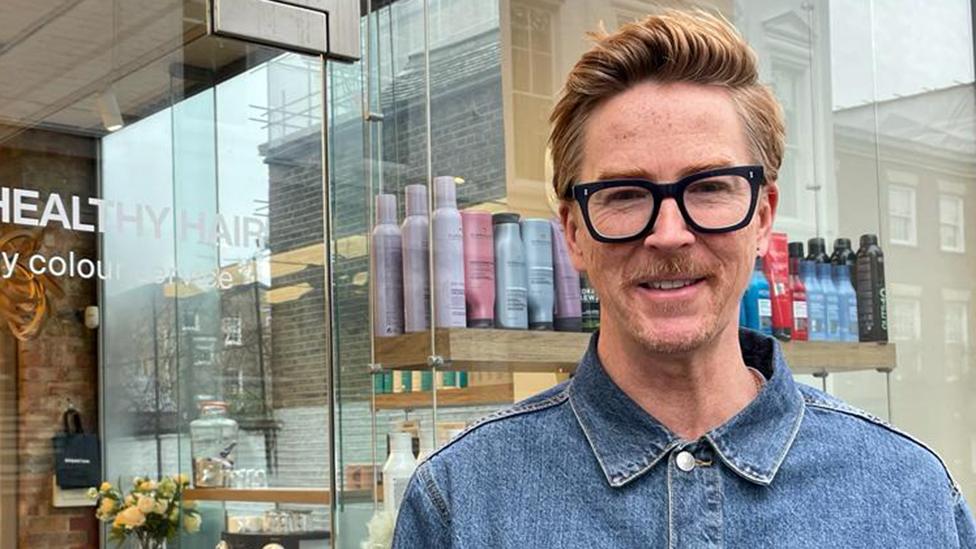Bowel cancer survivor urges others to take up screening offers
- Published
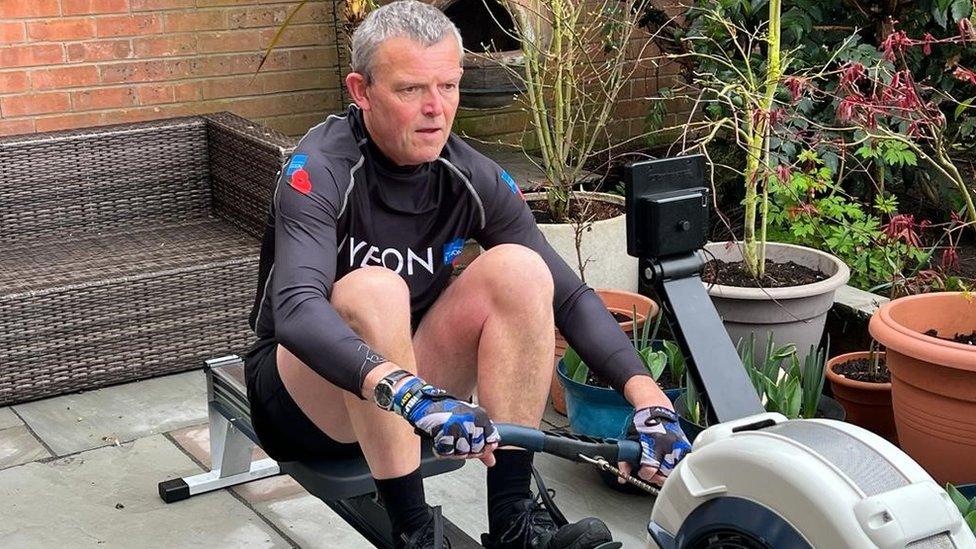
Gary Terry accepted a routine NHS invite for bowel screening
A sports fanatic has likened his invite for bowel cancer screening to being handed a winning lottery ticket.
Gary Terry was 55 when he received a letter in the post inviting him to take part in bowel scope screening - and he credits it with saving his life.
He was subsequently diagnosed with early stage bowel cancer in 2018, despite not having any symptoms.
Following surgery and chemotherapy, Mr Terry said he felt he had been "given a second chance at life".
"Getting that letter was like winning the lottery," he said.
"What were the chances of getting the letter when I did, catching the cancer at the stage it was, and still being here to enjoy semi-retirement with my family?"
He hopes sharing his story during Bowel Cancer Awareness Month will encourage others to take up screening offers.
Mr Terry, from Market Weighton, in East Yorkshire, was invited to take part in screening in February 2018.
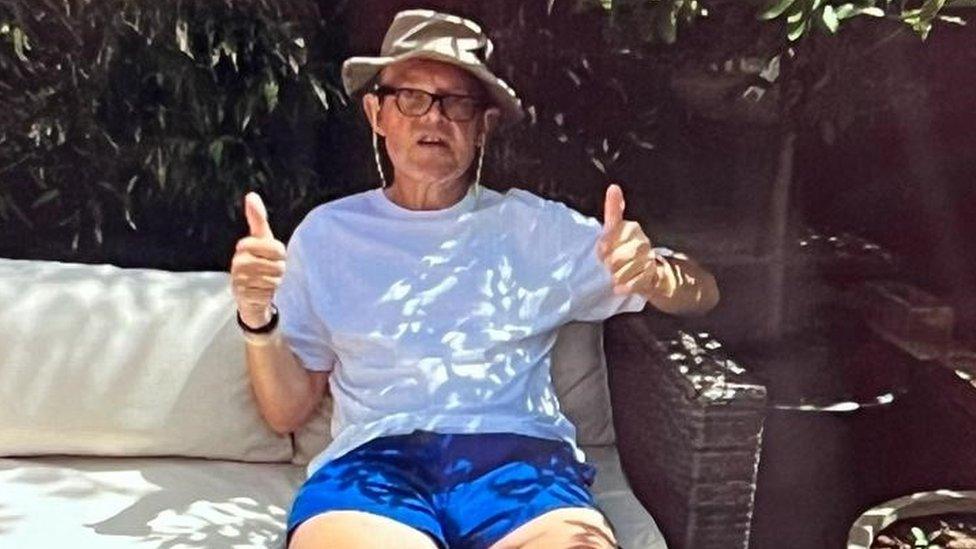
Gary Terry praised staff at Castle Hill Hospital in Cottingham for their care
A month later he had attended his appointment.
The screening involved insertion of a thin flexible tube, with a camera on the end, to look inside the lower part of the bowel. This has more recently been replaced by the FIT (faecal immunochemical test), which can be carried out at home using a small test kit, which is then posted to a laboratory for analysis.
Doctors found a small polyp, which at that stage was not causing Mr Terry any problems.
It turned out to be early bowel cancer and he required surgery to remove it.

Despite the diagnosis, he was determined to maintain his fitness, completing the half marathon distance of 13.1 miles on a rowing machine on the morning of his surgery.
Following a successful operation at Castle Hill Hospital in Cottingham, Mr Terry had 12 weeks of chemotherapy.
"I was pretty much smashing it for the first half," he said.
"I was continuing to exercise. But by the halfway point, I was tired and felt ill and couldn't keep the activity up. But as a former serviceman, I wasn't going to let it beat me."
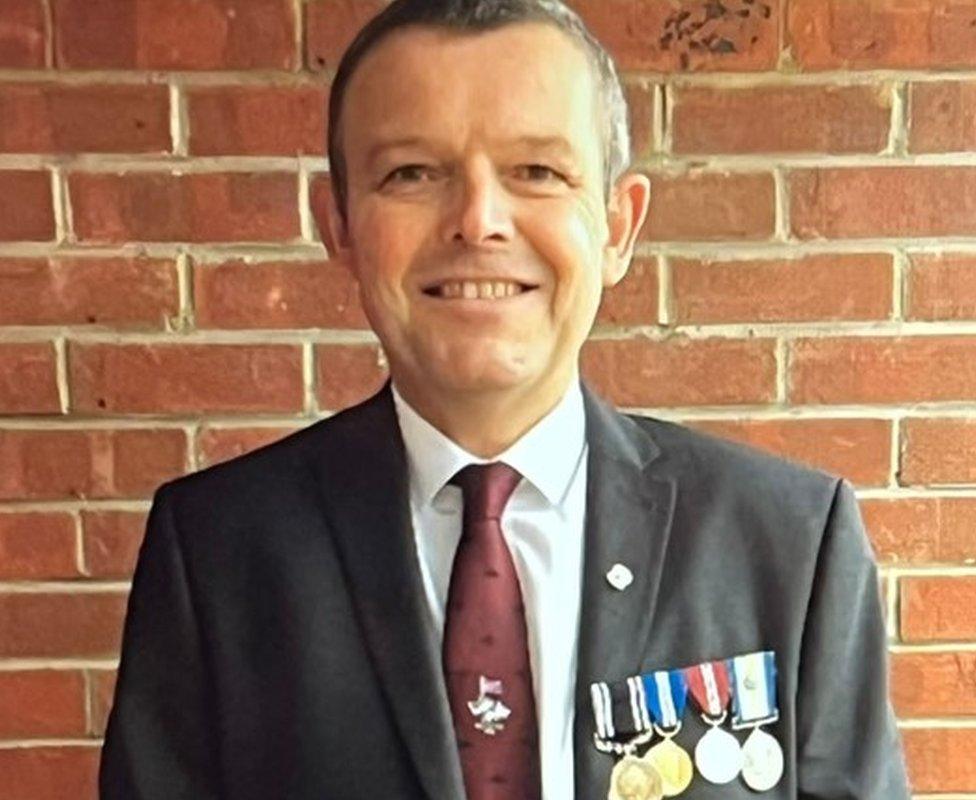
Gary Terry served in the Royal Navy during the 1982 Falklands conflict
Mr Terry served as a sonar operator in the Royal Navy between 1979 and 1987, including during the Falklands conflict of 1982.
"All the staff at Castle Hill Hospital were fantastic. I really have been blessed," he said.
In the Humber area, FIT test kits are sent out automatically to people aged between 56 and 74.
Mr Terry's message to anyone who receives a kit is clear.
"If you're asked to take part in screening, get over the embarrassment and just do it." he said.
Mark Hughes, clinical director for the Humber and Yorkshire Coast Bowel Cancer Screening Programme, said bowel cancer was one of the most common cancers in the UK, accounting for more than one in every 10 new diagnoses.
"The good news is that if it's caught early, it's highly treatable and has good long-term survival rates," he said.

Follow BBC East Yorkshire and Lincolnshire on Facebook, external, Twitter, external, and Instagram, external. Send your story ideas to yorkslincs.news@bbc.co.uk, external.
Related topics
- Published29 June 2022

- Published11 April 2023
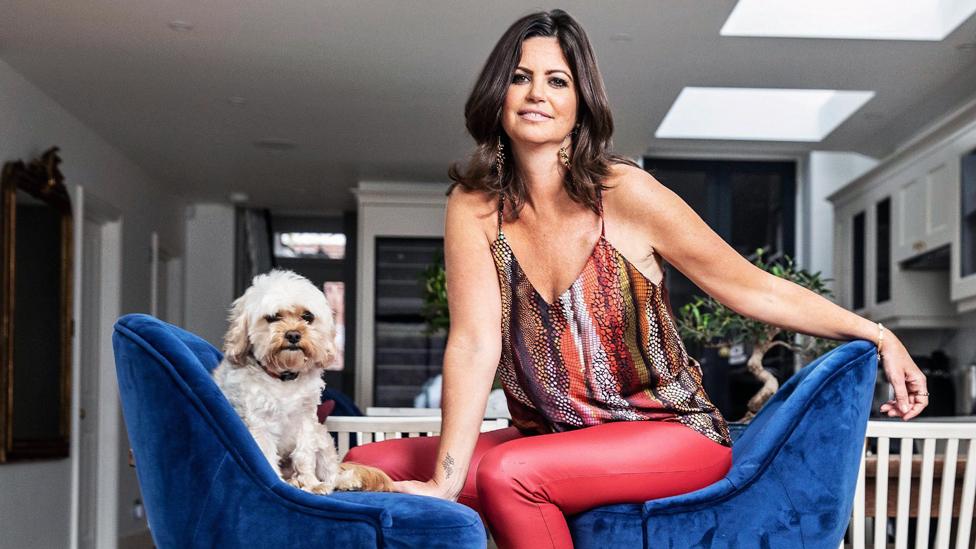
- Published30 March 2023
